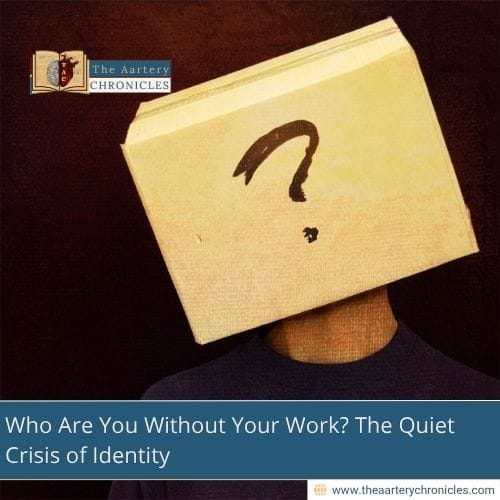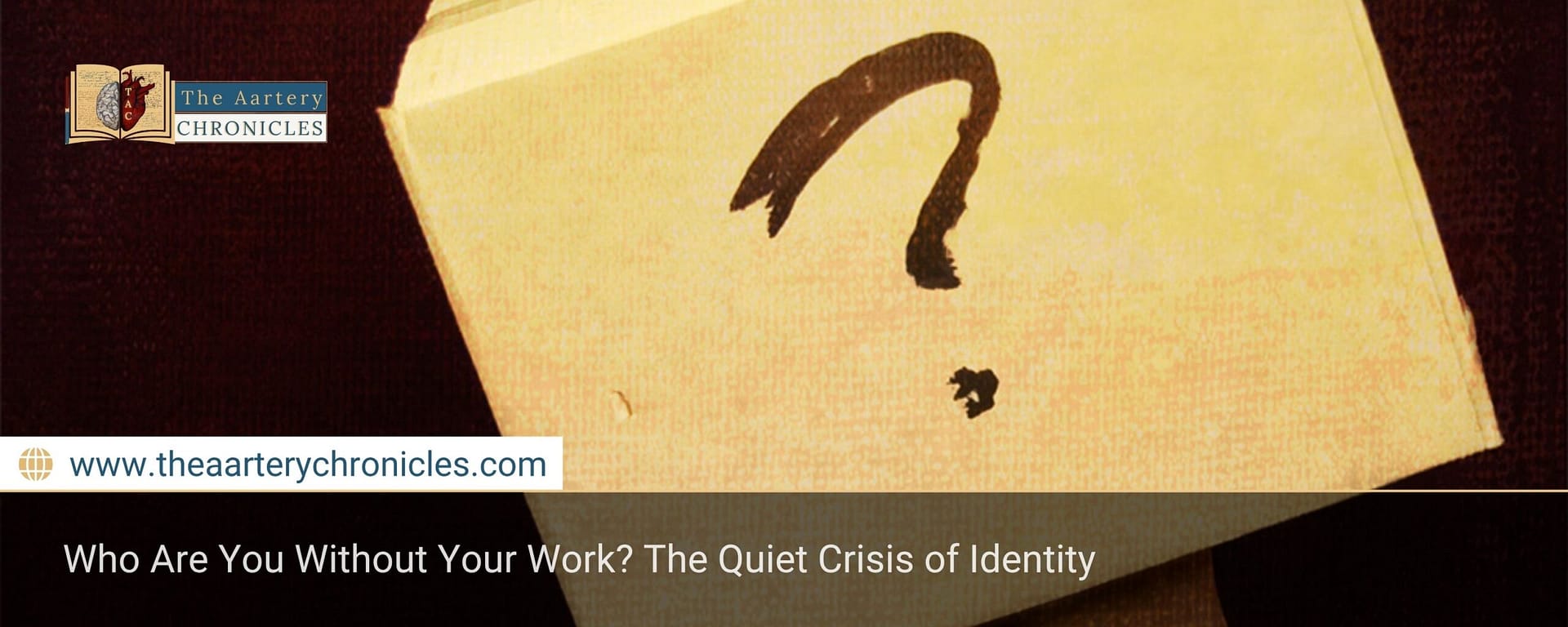

Who Are You Without Your Work? The Quiet Crisis of Identity
In an age where introductions begin with job titles and LinkedIn bios often double as personality summaries, one quiet but urgent question hums beneath the surface of our busy lives:
Who are you without your work?
For many, the answer is unnervingly unclear. In the absence of external markers like occupational goals, achievements, income, and institutional routines, one is left to confront the fundamental question of personal identity beyond professional roles.
This is the identity crisis no one talks about, especially in cultures that prize productivity above all else. We are not just doing work; we are becoming it.
The Invisible Merger of Self and Role
During early development, societal focus is often placed on occupational aspirations rather than on personal identity. Gradually, this emphasis on “what” one will become evolves from a simple career goal into a central component of one’s perceived self-worth. It’s how we gain approval, define purpose, and measure success.
But when work becomes the primary lens through which we view ourselves, something quietly shifts. A layoff, a career break, a burnout, or even retirement can feel not just inconvenient — but existential.
“If I’m not useful, am I still valuable?”
“If I’m not producing, who am I?”
These questions don’t arise because you’re weak or unmotivated. They emerge because we’ve built identity on a platform that was never meant to hold it alone.
The Pandemic of Purpose Confusion
The rise of burnout, career dissatisfaction, and even “quiet quitting” isn’t just about toxic work culture — it’s also about spiritual hunger. People are starving for meaning beyond metrics. They want lives, not just livelihoods.
And when systems tell us our value is tied to our output, rest feels like laziness, and reflection feels like a threat.
But the truth is, your worth is not your résumé. It never was.
Rediscovering Identity Beyond the Job Title
Here are a few ways to begin reclaiming the self that exists apart from your professional identity:
1. Name Who You Are, Not Just What You Do
Instead of saying, “I’m a marketing manager,” try, “I work in marketing, but I’m also a curious learner, an amateur guitarist, and a loyal friend.”
Rebuild vocabulary around being, not just doing.
2. Practice Worthiness Without Achievement
Take time to do things that are not productive — sitting in nature, journaling, drawing, volunteering. These remind you that your value does not depend on being useful.
3. Detach, do not Abandon
Detaching from an identity rooted in work does not mean abandoning ambition. It means letting work serve your life, not define it. Your job can be a chapter — not the whole story.
4. Define Your Personal Values
Ask: What qualities do I want to embody — regardless of where I work? Kindness? Creativity? Resilience? These deeper values outlast job titles and industries.
Lessons from Ancient Wisdom
Spiritual traditions across time have warned against over-identification with external roles.
In the Bhagavad Gita, Krishna reminds Arjuna that his deeper essence (atman) is untouched by status or circumstance.
In Stoic philosophy, Epictetus says:
“Know, first, who you are, and then adorn yourself accordingly.”
The Gift of Not-Knowing
If you have ever stepped away from work, willingly or not, and felt unmoored, consider it an invitation rather than a failure.
Not knowing exactly who you are without your work is uncomfortable, yes. But it’s also where the deeper self begins to speak. That part of you who is not a title or a role, but a whole, evolving human being.
Final Thought
Your worth is not earned; it is inherent. Occupational roles are better conceptualised as avenues for contribution, rather than as the sole foundation of personal identity.
So next time you introduce yourself, maybe lead with something more human:
“I’m someone who loves helping people grow. Right now, I do that through my job. But it’s also who I am — even when I’m not working.”
Because when we stop being what we do, we start becoming who we are.









